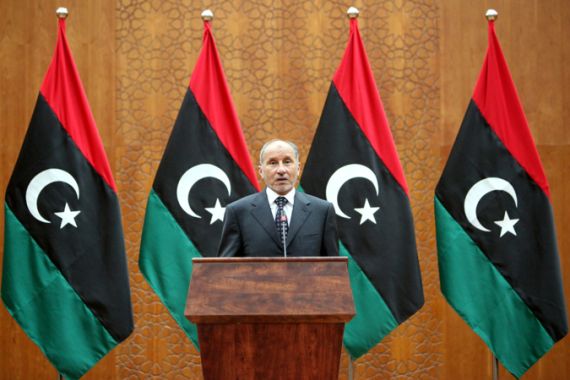
Why are Libyans protesting again?
As anger grows over the slow pace of reform, we ask if the transitional government can handle the shift to democracy.
It has been less than four months since the war ended in Libya with the downfall of Muammar Gaddafi.
|
“More [protests are] possibly to come if the NTC does not reinvent itself, does not become more transparent, and does not live up to the demands that were very much at the core of the revolution.“ – Tarik Yousef, a senior fellow at the Brookings Institute |
But for two weeks now Libyans have been protesting again – this time against the slow pace of reform under the new leadership. They have accused the ruling National Transitional Council (NTC) of failing to honour those who died fighting for the country’s freedom.
On Saturday, up to 2,000 angry protesters attacked the Libyan transitional government’s headquarters in the eastern city of Benghazi. They stormed the building and ran off with computers, chairs and desks while the country’s interim leader Mustafa Abdel Jalil was holed up inside.
Libyans have become increasingly frustrated with their new leaders. They want, among other things, better compensation and greater rights for those who fought Gaddafi’s forces.
|
“It seems that a lot of good measures have already been taken to start civic education about the electoral processes. For me, the greater concern is how the NTC manages public expectations about changes.” – Richard Barltrop, an analyst on Libyan affairs |
Libyans are particularly concerned about the new election laws the NTC is introducing. They say the public has not been properly consulted and the new rules do not live up to the democratic ideals they had all hoped for.
Critics of the draft election law have been vocal about three major issues, which includes the concern over gender representation in the National Congress, with just ten per cent of the 200 seats reserved for women. Then there are questions about the role of Libya’s expatriates as the law indicates that Libyans with dual nationality will not be able to run for election. And finally, the document does not outline how the country’s voting districts will be divided.
On this episode of Inside Story we ask: With elections due in June, are Libyans ready for a process many have never experienced? And is the Libyan National Transitional Council capable of handling the shift to democracy?
To discuss this we are joined by: Farah Abushwesha, a representative of non-governmental organisation Women 4 Libya; Richard Barltrop, an analyst on Libyan affairs; and Tarik Yousef, a senior fellow at the Brookings Institute.
Following the protests, Abdul Hafiz Ghoga, the deputy head of the NTC, announced his resignation, on Sunday.
He said: “My resignation is for the benefit of the nation. Unfortunately, the consensus has not continued to maintain the highest national interests. The atmosphere of deprivation and hatred has prevailed.”
|
Why are Libyans still protesting?
|